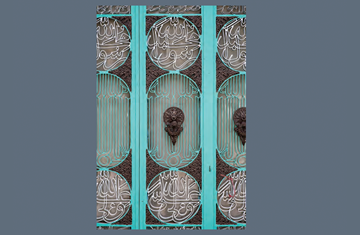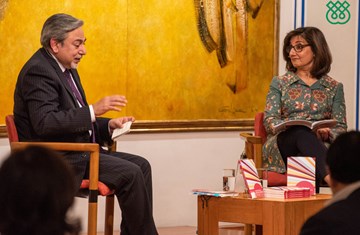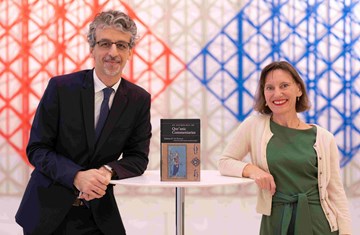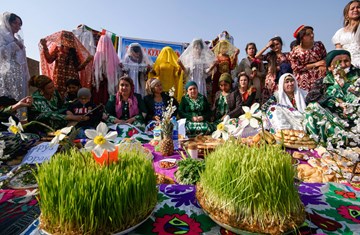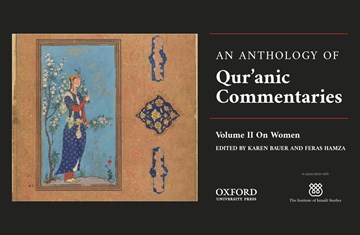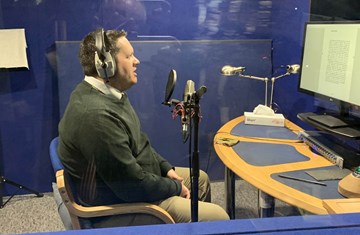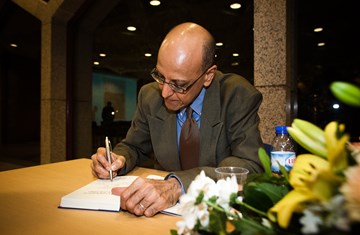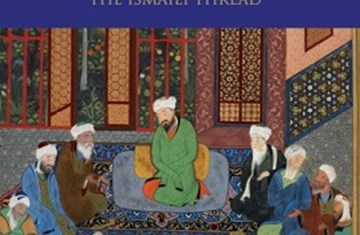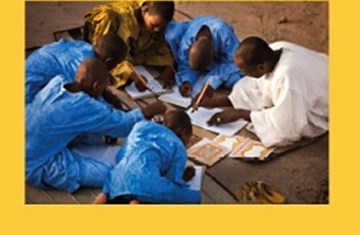IIS hosts book launch in London on a contemporary issue confronting Muslims in the Diaspora
The Institute of Ismaili Studies (IIS) on 26 June 2013 hosted a book launch at the Ismaili Centre in London for the book Islam, Sha'ria and Alternative Dispute Resolution- Mechanisms for Legal Redress in the Muslim Community by Mohamed M Keshavjee, PhD (Lond) and Barrister at law from the Honourable Society of Gray’s Inn.
In this publication, the author, an internationally renowned specialist on cross-cultural family mediation, examines both Sunni and Shi‘a applications of Islamic law to family mediation, demonstrating how political, cultural and other factors have influenced the practice of fiqh in the West, especially with regard to the modern development of alternative dispute resolution.
During the book launch event, Dr Keshavjee engaged in an on-stage conversation with Raficq Abdulla MBE, a well-known public speaker, poet and broadcaster, about his new publication. The on-stage conversation was followed by an interactive discussion with the audience and a book signing with the author. The event was well-attended by academics and legal professionals such as Lord David Hacking, renowned British arbitrator, Maulana Shahid Raza Naeemi, founding Chairman of the Muslim Imams National Advisory Board of the UK. and The Reverend Robin Griffith-Jones, Master of the Middle Temple Inn, as well as leaders and members of the Ismaili Community.
In his responses, Dr Keshavjee discussed how he developed an interest in this field and articulated the key ideas that readers can take away from the book. He also explained the concepts of mediation, adjudication and arbitration, and how these operate in the contemporary world.
In addition, the conversation also focused on various topics and cases discussed in this book, such as that of the Muslim woman whose difficulty in obtaining an Islamically valid divorce was resolved by Dr Zaki Badawi as part of the Shari'a ‘court’s’ equitable jurisdiction based on the underpinnings of the Shari‘a which emphasises the protection of the right to life, intellect, property, offspring and religion. These principles, which the Maliki jurist Shatibi wrote about many centuries ago, provided the impetus to help a woman who was facing undue harm and became the catalyst for the Muslim Law Shari‘a Council of the UK which has helped over 25,000 women over the last quarter-century.
With reference to his new publication, Dr Keshavjee said,
“I would like this book to contribute to discourse and not discord. Mediation as a dispute resolution tool is relatively new. Faith communities can play an important role in providing services that are culturally comforting to disputants but this can only be done through competence, empathy and understanding. Ethical values underpinning various faiths, if properly invoked, can help greatly in the healing process that is called for when conflict dehumanises its protagonists.”
Dr Keshavjee, who for 10 years coordinated all the Mediation Training Programmes in the Ismaili community worldwide, has a background in Islamic Law, International Protection of Human Rights, Arab Comparative Commercial Law and Alternative Dispute Resolution.
He attained his doctorate in Law in Alternative Dispute Resolution (ADR) at the School of Oriental and African Studies, University of London, and has lectured to LLM students on ADR in diasporic Muslim communities at the London School of Economics. He has also contributed chapters to influential books dealing with different Muslim communities and legal pluralism in Europe. He is at present a member on the Advisory Committee of the International Social Service of Geneva which has representatives in over 125 countries of the world and is involved actively in promoting family mediation globally as a dispute resolution mechanism.

